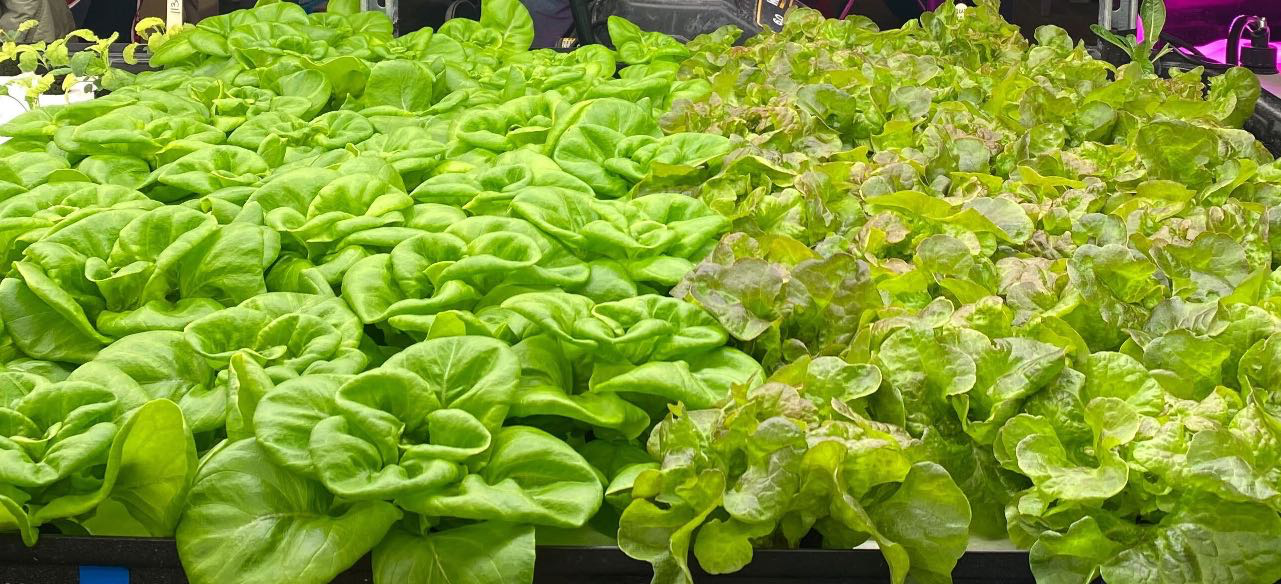Re-Nuble
About
Re-Nuble is a women-founded technology start-up that harvests food waste locally and turns it into usable, commercial-grade synthetic fertiliser at scale for the indoor farming industry. Its organic nutrients provide an alternative to conventionally mined mineral salts, enable indoor farms to contribute to food system resilience by improving the productivity of indoor growers, and lower food system carbon emissions by diverting food waste from landfill.
Re-Nuble has received investment from climate-focused impact investors, as well as those focusing on technology innovations brought to market by women of colour. Re-Nuble’s gender lens investors include The 22 Fund, WOCstar Fund, and She1K.
Re-Nuble was founded by Tinia Pina in New York City, where the city spends over $180 million each year to deal with food waste. Pina observed the opportunity to both divert food waste from landfill and boost climate resilience by meeting the needs of soilless farms in ways that reduced emissions.
Type of actor
Start-up company
Investment type
Private
Operates in
United States
Approach
The company has developed on-site waste upcycling for farms. These plug-and-play systems of tanks, valves and sensors capture soilless farms’ production waste, turn it into fertiliser, and discharge this fertiliser into a farm’s water system. Re-Nuble also makes fertilisers from vegetable waste sourced from food manufacturers, distributors and processors, as well as growing media that provides an alternative to peat.
Its distributed waste upcycling model has expanded to a manufacturing facility in Rochester and a vertical farm in Glens Falls, both in northern New York State.
Re-Nuble’s team is gender-balanced and comprises roughly 55% men and 45% women. It is diverse in age, race and ethnicity. It works with non-profits and the educational sector to boost agricultural skills in underrepresented groups and thus expand the talent pipeline for agriculture technology. And it has a mandate from one investor, the 22 Fund, to expand manufacturing and job creation in under-served communities.
Impact
Re-Nuble’s fertiliser has a quantifiable impact on emissions: a one-acre farm that uses the fertiliser eliminates 1.62 metric tons of carbon emissions from the atmosphere each year. Each gallon of fertiliser avoids 18.75 pounds of carbon emissions that would otherwise have been released from food waste sent to landfills.
In addition, its solutions serving indoor growers potentially have a climate justice impact by increasing the productivity of food systems and urban access to fresh food, and abating carbon emissions and air pollution that disproportionately affect underserved communities.
Finally, producing fertiliser from food system waste reduces the need for conventionally mined mineral salts that are mined and processed in ways disruptive to rural areas. By averting such disruptions, which disproportionately affect women, fertiliser from food waste has an additional, indirect gender and social impact.
“In Re-Nuble’s view, diversity and job creation are a means of growing its talent pipeline rather than a compliance burden.”
Key takeaways
The diversity and job creation mandates from some of Re-Nuble’s impact investors are well aligned with the company’s purpose and practices. “Knowing that those investors have due diligence looking for that to be filled, we need to be consistent in knowing that we hire with those lenses,” Pina says. In Re-Nuble’s view, diversity and job creation are a means of growing its talent pipeline rather than a compliance burden.
What’s next?
Commercially, Re-Nuble is expanding its range of products with a peat-alternative growth medium launched in June 2022. It also seeks to replicate its distributed waste upcycling model in other US states, Canada, and developing markets, and adapt this model for regional agricultural needs. Particularly in emerging markets, it seeks to introduce new agricultural models and serve women farmers and employees, says Pina: “If we don’t encourage women to think differently in terms of how they do agriculture, there’s a big loss in productivity.”

